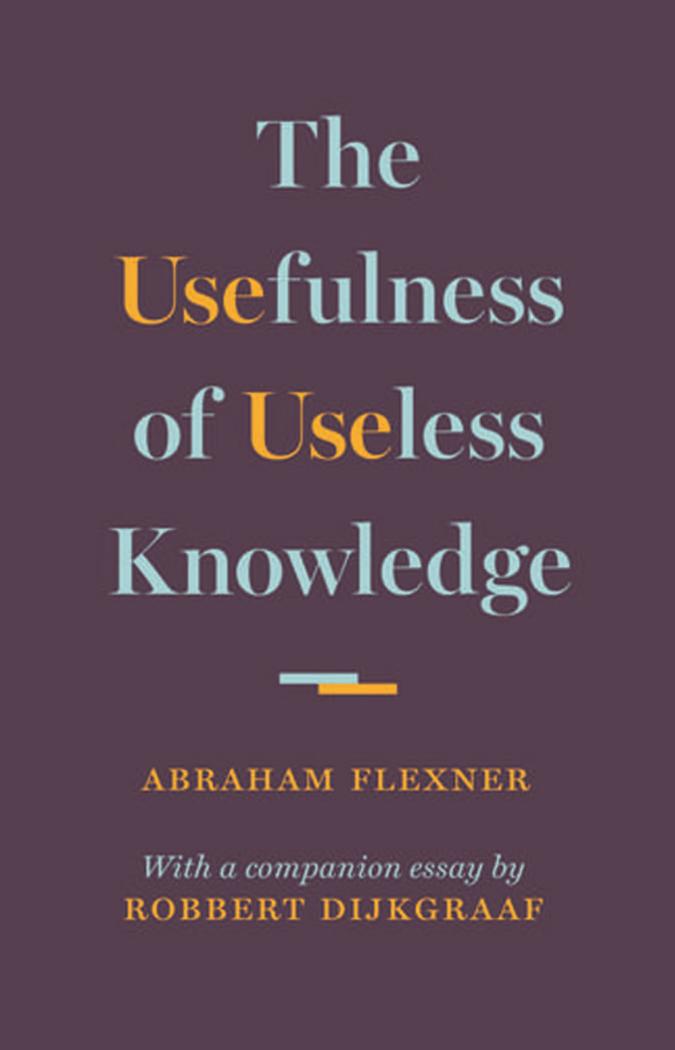The Usefulness of Useless Knowledge by Abraham Flexner

Author:Abraham Flexner
Language: eng
Format: epub, pdf
Publisher: Princeton University Press
Published: 2017-06-15T00:00:00+00:00
The physicist John Wheeler, well-known for his work on nuclear physics and black holes, liked to draw a picture of the universe as a huge capital letter U. On one of its legs, he would draw an eye. We are the universeâs eye. Humankind looks at the cosmos, including itself, and, as one of its fortunate observers, applauds the spectacle. Beauty is in the eye of the beholder, and the beauty of the world and the mind is within us. Experiments and equations, theories and telescopes, libraries and laboratories didnât fall out of the sky. They are all hand-made here on planet Earth. We are living in an extraordinary age in which human intelligence, curiosity, and intrepidness are connecting the scientific dots at an exponential rate, enabling a deeper view into the riddle of our existence.
Flexner writes eloquently about how fearless thinking helps to answer fundamental questions about nature and identity: Who am I? Where am I? What does it mean to be a human being? Freedom of thought is essential to human welfare, not only as a tool for advancing knowledge, but also as crucial elements of democracy and tolerance. Like the arts, unfettered scholarship uplifts the spirits, heightens our perspective above the everyday, and shows us a new way to look at the familiar. It literally changes our world. In Flexnerâs words, âThe real enemy of the human race is not the fearless and irresponsible thinker, be he right or wrong. The real enemy is the man who tries to mold the human spirit so that it will not dare to spread its wings.â
The Worldâs Fair looked further ahead than dishwashers and television sets. The very long-term future was addressed by a time capsule, buried in the fairgrounds, resistant to corrosion, to be opened only in five thousand years. Apart from a Mickey Mouse cup, copies of Life magazine, an array of coins, and many other everyday goods, it contained a letter by Einstein about the human progress and failings of his time, to be read by posterity with, he hoped, âa feeling of proud and justified superiority.â His first sentence expresses the promise that scholarship can bring to humanity, which so much infused the fair: âOur time is rich in inventive minds, the inventions of which could facilitate our lives considerably.â
In many ways, Flexnerâs essay can be seen as a similar time capsule, written in a time of great upheaval and anxiety, but fundamentally positive in its long-term outlook. Looking back, it is remarkable how relevant and timely his observations about the power of human curiosity are to the world of today. Itâs not hard to imagine that this will also be true for the world of tomorrow.
Download
The Usefulness of Useless Knowledge by Abraham Flexner.pdf
This site does not store any files on its server. We only index and link to content provided by other sites. Please contact the content providers to delete copyright contents if any and email us, we'll remove relevant links or contents immediately.
Asking the Right Questions: A Guide to Critical Thinking by M. Neil Browne & Stuart M. Keeley(5747)
Autoboyography by Christina Lauren(5221)
Eat That Frog! by Brian Tracy(4508)
Dialogue by Robert McKee(4379)
Sticky Fingers by Joe Hagan(4180)
Journeys Out of the Body by Robert Monroe(3607)
Annapurna by Maurice Herzog(3459)
Full Circle by Michael Palin(3436)
Schaum's Quick Guide to Writing Great Short Stories by Margaret Lucke(3368)
Elements of Style 2017 by Richard De A'Morelli(3336)
The Art of Dramatic Writing: Its Basis in the Creative Interpretation of Human Motives by Egri Lajos(3055)
Atlas Obscura by Joshua Foer(2943)
Why I Write by George Orwell(2941)
The Diviners by Libba Bray(2924)
The Fight by Norman Mailer(2921)
In Patagonia by Bruce Chatwin(2915)
The Mental Game of Writing: How to Overcome Obstacles, Stay Creative and Productive, and Free Your Mind for Success by James Scott Bell(2893)
Venice by Jan Morris(2561)
The Elements of Style by William Strunk and E. B. White(2463)
